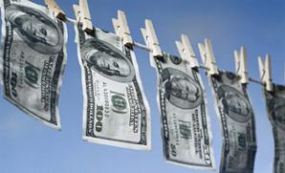Here’s a way to get very rich quite quickly and easily, but what do you think?
There are these people we know who have incredibly accurate timing when it came to the markets. I jokingly called them the folks with the “midas touch”. They built their net worth on some seriously perfect market timing moves that turned their few cent options into at least $25 million after they sold them all at the stock’s peak. I actually witnessed when and how those shares got unloaded, and it was clearly an n-bagger, where n is stratospheric. These friends, who started out as modest engineers, were big contributors to their then small, high-flying company; and now they reside in a 7,000 square foot mansion in the heart of the most valuable real estate in the Bay Area, obviously major winners of the dotcom era. They’ve also gone on to reinvest their moneys in new startups and bigger ventures. Their empire has only grown while the stock that made them rich proceeded to crash to more reasonable price points, flamed out and stayed flat at unremarkable levels.
Then just some days ago I came across a newspaper article on how a certain well-known mid-sized company just revealed that their options program from the past was “tainted”. This company was the same one that made my friends’ fortunes, and now it will be under investigation for their option grant program. They had practiced the backdating of options so that employees would capture the widest spread in profits from the stock. It may not be considered illegal, but can break tax, accounting, and securities rules.

So the authorities (that’s the SEC) have been snooping around to check the extent of the manipulation. But really, what can be done about this? Most in the company won’t pay for these errors. You can’t really fault employees who received massive windfalls through their grants can you? As white collar missteps go, management will be cited and a big honking charge will go on the books.
The tough thing about such a situation is that many of the people who have benefited the most from such a questionable event are now mostly all gone and have gone on to bigger projects, brighter lives and may even have moved to places unknown. The company has seen its heydey and after the tech crash in 2000, exists today more simply and no longer the same darling it once was. But if you penalize this company today, the penalties will be felt by the current underlings who are just doing their jobs trying to keep the company alive. These people may be innocent, but will have to answer to the wrongdoings committed primarily in a previous era.
If I were in my friends’ shoes, I wonder how I’d feel. Maybe a knot in my chest wondering any of these things: should I feel guilty about sitting on top of a pile of “tainted” money? How uncomfortable should I feel about this — or is this a non-issue and I should just go on with my merry life? Chances are, those in the situation will shrug this off and say, “Naah! Not my problem, the Board approved it and Accounting did it”.
With conflicts like this, there’s always some kind of defensive stance that a company takes and a spin on what really happened. The question is whether you, if this actually ever happened to you, would believe the spin.
Copyright © 2007 The Digerati Life. All Rights Reserved.
{ 4 comments… read them below or add one }
I think this is a good warning to investors. We should research and diversify our investments carefully so we don’t end up losing our money while some people working at the company we invested cash out and get rich.
Hmm, I don’t think that its unethical to keep the money. As with all white collar crime, its difficult to really see the victims.
Presumably, if you penalise the company now, then the losses will be felt more by the existing investors, which is a shame but thats sort of, one of the risks you take when you invest in a company.
There really isn’t very much you can do as a regular employee on this matter. Apple is one very high profile company that has undergone such a charge in the past. I suppose that’s what the SEC is there for, to determine regulations surrounding these types of issues. With this kind of white collar dishonesty though, is there anyone really hurt in the matter and is the punishment commensurate to the action?
Can anyone say Enron?